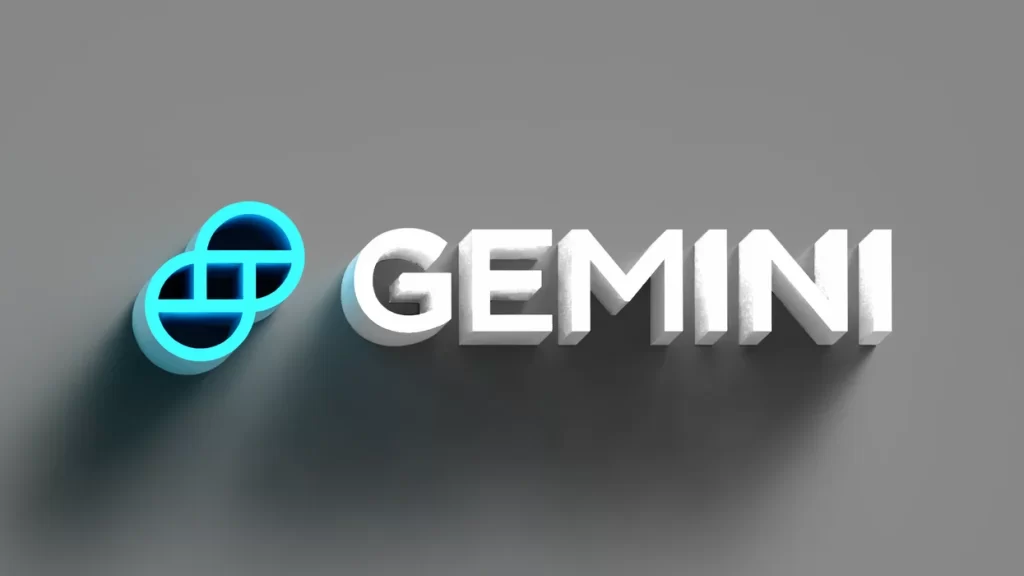Digital Currency Group (DCG) has dismissed the lawsuit filed by Gemini as a “publicity stunt” orchestrated by Cameron Winklevoss.
Gemini recently announced that it has taken legal action against DCG and its CEO, Barry Silbert, accusing them of defrauding creditors.
According to Gemini, Silbert pressured the continuation of the Earn program despite knowing about Genesis’ insolvency.
READ MORE: Investors Chase Second Coming of Popular Coins, Such As Pepe 2.0 and Floki 2.0
Cameron Winklevoss alleges that Silbert and DCG executives repeatedly lied to conceal the truth from Gemini and other creditors.
Genesis, a subsidiary of DCG, reportedly owes nearly $1 billion to Gemini’s Earn program users and other creditors.
DCG responded to the lawsuit by issuing a statement last night, dismissing it as baseless and defamatory.
The company labeled the legal action as another attempt by Cameron Winklevoss to deflect blame from himself and Gemini.
DCG emphasized that any suggestions of wrongdoing by the company or its employees are completely false.
The statement revealed that DCG has been actively engaged in negotiations with the representatives of the Official Unsecured Creditors Committee and Ad Hoc committee to reach a resolution.
DCG criticized Gemini’s leadership, accusing them of being “missing in action” and making press statements while DCG has been working tirelessly to find a solution.
DCG’s statement clarified that neither of the Winklevoss twins was involved in any of the in-person meetings related to the mediation process.
The statement concluded optimistically, expressing an expectation to bring the Genesis Chapter 11 case to a close soon.
In response to DCG’s statement, Tyler Winklevoss, co-founder of Gemini, tweeted that DCG and Barry Silbert failed to address or deny any of the allegations made in the 33-page complaint.
Tyler questioned which parts of the complaint DCG considers “baseless, defamatory, and completely false.”
Gemini asserts that DCG and Silbert were directly involved in misleading creditors about Genesis’ financial condition.
The lawsuit claims that when Three Arrows Capital (3AC) collapsed in June 2022, it created a $1.2 billion deficit in Genesis’ balance sheet.
Gemini alleges that DCG intentionally lied to reassure them that they would absorb the losses.
The Winklevoss twins have repeatedly warned DCG of potential legal action if the issue remained unresolved.
The lawsuit between Gemini and DCG continues to unfold as both parties present their arguments and evidence in court.
Discover the Best Crypto Marketing Agencies
According to a report by Bloomberg News on July 5, investigators from the Commodity Futures Trading Commission (CFTC) have concluded that Celsius, a bankrupt crypto lender, and its former CEO Alex Mashinsky violated U.S. regulations prior to the company’s collapse.
Sources familiar with the matter stated that attorneys in the CFTC’s enforcement unit found evidence that Celsius had misled investors and should have registered with the regulatory body.
If the majority of the CFTC’s commissioners concur with this determination, the agency may initiate legal proceedings in federal court as early as this month.
Neither Celsius nor the CFTC provided an immediate response when approached by Reuters for comment.
READ MORE: Source: Logan Paul Has Changed His Mind About Refunding CryptoZoo Investors
The downfall of TerraUSD last year triggered market turmoil that resulted in the failure of numerous prominent cryptocurrency companies, including Celsius Network.
As a consequence, the company filed for bankruptcy, leaving its clients with substantial losses.
As part of Celsius’ bankruptcy proceedings, an independent examiner was appointed to investigate allegations that the firm had functioned as a Ponzi scheme.
The examiner’s task was to scrutinize how Celsius had managed its cryptocurrency assets and produce a report on their findings.
Earlier this year, the Attorney General of New York filed a lawsuit against Alex Mashinsky, the founder of Celsius.
The lawsuit alleged that Mashinsky had defrauded investors of billions of dollars in digital currency by concealing the deteriorating state of the lending platform.
These developments underscore the challenges and risks associated with the crypto industry.
Regulatory bodies such as the CFTC play a crucial role in ensuring compliance and protecting investors from potential misconduct.
The outcome of the CFTC’s investigation and any subsequent legal action will shed further light on the alleged wrongdoing by Celsius and its former CEO.
According to a report by SlowMist on July 7, a staggering $30 billion worth of cryptocurrency has been hacked in 1,101 documented incidents from 2012 to the present.
This represents approximately 2.5% of the total market capitalization of cryptocurrencies. SlowMist, a blockchain security firm, identified the top five most common types of hacks as smart contract vulnerabilities, rug pulls, flash loan attacks, scams, and private key leaks.
Among the documented incidents, there were 118 exchange hacks, 217 hacks within the Ethereum ecosystem, 162 within the BNB Smart Chain ecosystem, 119 within the EOS ecosystem, and 85 hacks related to nonfungible tokens (NFTs).
Exchange hacks accounted for the largest losses, with over $10 billion lost over the past decade.
READ MORE: Vitalik Buterin Fires Warning About Bitcoin’s Future
Notable early attacks in the history of Bitcoin include the infamous 2014 Mt. Gox hack and the 2016 Bitfinex hack.
Mt. Gox, once the largest Bitcoin exchange in the world, filed for bankruptcy in 2014 after discovering that 850,000 BTC (valued at $25.2 billion at the time) had been stolen through discreet hacks over several years.
Since then, Mt. Gox has managed to recover 200,000 BTC (worth $6.1 billion) and is in the process of redistributing them to creditors.
Similarly, in 2016, Bitfinex experienced a security breach that resulted in the loss of 119,576 BTC, valued at around $70 million at the time and approximately $3.7 billion now.
On February 8, 2022, special agents from the United States Department of Justice managed to recover 94,000 of the stolen BTC.
Interestingly, the report indicates that hack events with losses exceeding $1 billion peaked in the early 2010s and between 2019 and 2021.
Since 2022, there has been a decrease in the number of security incidents, aligning with findings from other reports.
These alarming figures highlight the ongoing challenges of securing cryptocurrencies and the need for robust security measures within the crypto ecosystem.
As the industry continues to evolve, it is crucial for individuals, exchanges, and projects to prioritize cybersecurity to safeguard against potential attacks and protect the investments of users.
The DeFi ecosystem has been facing an increasing number of hacks, but there is some good news on the horizon.
A smart contract developer has introduced a new Ethereum request for comment (ERC) proposal that could potentially reduce losses from hacks by 70%.
This proposal suggests the implementation of a circuit breaker, which would help prevent suspiciously large token outflows from DeFi protocols.
However, the security concerns continue as certain Multichain contracts on Ethereum experienced significant withdrawals, raising fears of a possible exploit.
READ MORE: BarnBridge DAO Halts Operations Amidst SEC Investigation
The Poly Network, a cross-chain bridge platform, was also targeted by hackers due to a compromise in a private key.
This exploit affected 57 different crypto assets, prompting the platform to request users to withdraw their funds.
In a separate incident, the BarnBridge DAO, a decentralized autonomous organization, faced regulatory scrutiny from the United States Securities and Exchange Commission (SEC). As a result, members of the DAO were advised to halt all project-related activities.
Shifting gears to new developments, the decentralized social media protocol DeSo has offered a $1 million bounty for the creation of a Reddit competitor built on its native blockchain.
This initiative aims to foster innovation and competition within the decentralized social media space.
Taking a look at the market performance, the top 100 DeFi tokens had a mixed week.
While most tokens traded within a similar range as the previous week, a minor bearish correction was observed.
In summary, a new ERC proposal for a DeFi circuit breaker could potentially reduce losses from hacks by 70%.
However, the DeFi ecosystem continues to face security challenges, as demonstrated by recent exploits and regulatory scrutiny.
On a positive note, DeSo’s bounty program seeks to drive innovation in decentralized social media.
The overall performance of the DeFi market remained relatively stable, with the total value locked in DeFi protocols remaining below $50 billion.
Cryptocurrency exchange Crypto.com has filed a petition with a Florida court to confirm a judgment obtained through arbitration after mistakenly depositing $50,000 into a user’s account.
The court filing, dated July 6, states that Crypto.com made an “erroneous deposit” into James Deutero McJunkins’ account in June 2022.
The user did not appear to have earned the funds through trades or other activities and promptly transferred the money to an external bank account, beyond the reach of Crypto.com’s authority.
Despite repeated requests for the return of the funds, McJunkins ignored the exchange’s appeals.
READ MORE: Top Executives Depart Binance Amidst Legal Scrutiny and Compliance Concerns
In October 2022, Crypto.com sought arbitration to address the missing funds, accusing McJunkins of civil theft and breach of contract.
The arbitrator ruled in favor of the company and awarded Crypto.com a total of $76,391.46 in April 2023.
This amount included the original $50,000 transaction, $1,786.11 in statutory interest, $21,205.35 in attorneys’ fees, and $3,400 in arbitration costs.
However, the arbitrator’s ruling did not possess the authority to enforce payment from McJunkins.
Consequently, Crypto.com has turned to the federal court system to seek resolution.
The petition, submitted on July 6, requests the Florida court to “confirm the Arbitrator’s Award and enter a final judgment in its favor and against McJunkins” for the outstanding amount owed.
This incident bears similarities to a previous case involving Crypto.com and two users based in Australia.
In May 2021, the exchange mistakenly transferred over $6 million to the couple’s account, only discovering the error in December of the same year.
The recipients purportedly spent a substantial portion of the funds, believing it to be a prize from the exchange.
The Australian authorities subsequently charged the duo with theft, and the case remains ongoing.
By petitioning the Florida court, Crypto.com aims to obtain a final judgment to secure the repayment of the mistakenly deposited funds.
This legal action showcases the complexities and challenges faced by cryptocurrency exchanges in rectifying errors and holding users accountable for their actions.
Over $765,000 worth of nonfungible tokens (NFTs) have reportedly been stolen in a SIM swap attack targeting the Gutter Cat Gang NFT project.
The breach came to light around 8:00 pm UTC on July 7 when members of the NFT community noticed suspicious activity.
Gutter Mitch, co-founder of Gutter Cat Gang, issued a warning on Twitter, alerting users that their account had been compromised and urging them not to interact with any links.
READ MORE: Vitalik Buterin Fires Warning About Bitcoin’s Future
In addition to the official Gutter Cat Gang account, co-founder Gutter Ric also fell victim to the hackers.
The attackers exploited the compromised accounts to distribute links to fake limited edition Gutter Cat Gang NFT sneaker airdrops.
When users clicked on these links, their hot wallets were drained of funds.
To lend credibility to their scheme, the hackers incorporated recent Gutter Cat Gang branding and images from the project’s phygital sneaker drop, which featured a collaboration with Puma and NBA/Charlotte Hornets star LaMelo Ball.
Prominent blockchain investigator ZachXBT, responding to Gutter Mitch’s tweet, suggested that the team had fallen prey to a SIM swap attack, raising questions about their cybersecurity practices.
He emphasized the need for a compensation plan for the victims, considering the negligence of using SMS 2FA given the recent surge in SIM swap attacks.
ZachXBT also highlighted two victims of the attack, one losing a Bored Ape Yacht Club NFT valued at $65,913 and another losing a staggering $700,000 worth of NFTs from various renowned collections.
Gutter Dan, another co-founder of Gutter Cat Gang, provided an update, stating that they were working with Twitter to regain control of the compromised accounts.
He expressed deep sympathy for those affected and assured the community that they were treating the matter seriously, collaborating with law enforcement to investigate the hack and security breach.
As of now, the compromised accounts remain under the control of the attackers.
Gutter Cat Gang, launched in mid-2021, consists of 3,000 unique NFT cartoon cat avatars.
The current floor price for these NFTs is 0.5 Ether (ETH), equivalent to approximately $1,858, representing a substantial increase of nearly 615% from the initial minting cost, according to NFT Price Floor.
According to a report by JPMorgan managing director Nikolaos Panigirtzoglou, the approval of a spot Bitcoin exchange-traded fund (ETF) in the United States may not have a significant impact on crypto markets, but it could benefit the leading cryptocurrency.
Panigirtzoglou, based in London, is part of JPMorgan’s global market strategy team and believes that a Bitcoin ETF in the US would have a similar effect as those seen in Canada and Europe, where such ETFs have been available for some time.
The report reveals that Bitcoin ETFs have generally attracted little investor interest in other jurisdictions over the past two years.
They have also failed to benefit from investor outflows from gold ETFs.
READ MORE: Top Executives Depart Binance Amidst Legal Scrutiny and Compliance Concerns
Despite this, Panigirtzoglou sees potential benefits if a Bitcoin ETF is approved in the US.
He suggests that it could bring more liquidity to Bitcoin markets and possibly lead to a shift in trading activity from BTC futures products.
Panigirtzoglou’s perspective differs from the high expectations surrounding the approval of a Bitcoin ETF in the United States. BlackRock’s CEO, Larry Fink, expressed during an interview on July 6 that investors might turn to Bitcoin as a hedge against inflation and the devaluation of fiat currencies.
Fink emphasized that Bitcoin is an international asset, not tied to any specific currency, making it an alternative asset for people to consider.
The annual inflation rate for the US, as reported by the Labor Department, was 4.0% for the 12 months ending in May.
The success of BlackRock in filling ETFs has generated optimism that their attempt to launch a Bitcoin ETF might also succeed.
Data from Bloomberg Intelligence’s Eric Balchunas and James Seyffart indicates that only one out of the 550 funds filed by BlackRock has been rejected to date.
Following BlackRock’s application, other companies such as Invesco, Fidelity, WisdomTree, and ARK Invest have also submitted applications or refilings with the Securities and Exchange Commission (SEC).
However, it’s worth noting that the SEC has previously denied several applications for Bitcoin ETFs.
In conclusion, while the approval of a Bitcoin ETF in the US may not be a game changer for crypto markets, it could have some positive implications for the leading cryptocurrency, such as increased liquidity and potential shifts in trading activity.
However, the overall impact might not be as significant as some anticipate, considering the historical investor interest in Bitcoin ETFs in other jurisdictions.
Cryptocurrency exchange Binance has entered into an agreement with Coinmerce to facilitate the transition of its users as it winds down its operations in the Netherlands.
Coinmerce, a Dutch crypto exchange, announced the collaboration in a blog post on July 6.
The partnership will enable hundreds of thousands of Binance users in the Netherlands to transfer their digital assets to Coinmerce’s platform at no cost.
READ MORE: Larry Fink Advocates for Crypto, Fuels Hopes for Bitcoin ETF Amid Regulatory Uncertainty
Binance had previously revealed plans to significantly reduce its services for Dutch users starting from July 17 due to its failure to acquire a virtual asset service provider license in the country.
Coinmerce co-founder Nick Smits van Oyen stated that their platform is fully compliant with European laws and regulations and offers Binance users an equivalent alternative.
He assured a smooth transition process, emphasizing that they had worked closely with Binance to make the switch as effortless as possible for the users.
The trouble for Binance in the Netherlands began in April 2022 when the country’s central bank imposed a fine of approximately $3.3 million on Binance Holdings for operating crypto services without the necessary registration.
At that time, the central bank highlighted the exchange’s large customer base in the Netherlands.
While Binance has been expanding its operations into various countries, it has encountered regulatory challenges in certain jurisdictions.
In the United States, the exchange has faced legal action from both the Securities and Exchange Commission (SEC) and the Commodity Futures Trading Commission (CFTC).
Furthermore, reports suggest that Binance’s French division is currently under investigation.
Despite these regulatory hurdles, Binance continues to explore opportunities for growth in other regions, such as Kazakhstan.
The exchange remains a prominent player in the global cryptocurrency market, but it faces increasing scrutiny from regulators, who are aiming to establish clear frameworks for the operation of digital asset platforms.
As Binance collaborates with Coinmerce to assist its Dutch users with the transition, it remains to be seen how the exchange will navigate the regulatory landscape in different countries moving forward.
Cryptocurrency exchange Gemini, based in the United States, has taken legal action against Digital Currency Group (DCG) and its CEO, Barry Silbert, accusing them of “fraud against creditors.”
In a filing made on July 7 in a New York court, Gemini claimed that DCG and Silbert were involved in a scheme where they lent large amounts of cryptocurrency and U.S. dollars to Genesis, a subsidiary of DCG.
Gemini seeks to recover funds it incurred due to alleged false representations and omissions by DCG and Silbert, as well as their alleged role in facilitating Genesis’s fraud against Gemini.
READ MORE: Vitalik Buterin Fires Warning About Bitcoin’s Future
The exchange also intends to pursue legal avenues in Genesis’s bankruptcy case.
Genesis had been responsible for operating an Earn program in partnership with Gemini, allowing users to loan crypto with the promise of repayment and interest.
However, the program suspended withdrawals in November 2022, citing market turmoil, and subsequently filed for Chapter 11 bankruptcy.
Gemini co-founder Cameron Winklevoss, in a Twitter thread on July 7, claimed that Silbert was aware of Genesis’s insolvency when attempting to continue the Earn program.
The complaint further alleged false financial reporting by DCG and Silbert, starting with the collapse of Three Arrows Capital in June 2022, which resulted in a significant deficit in Genesis’s balance sheet.
Winklevoss asserted that Genesis and DCG owed $900 million to Gemini’s clients.
Winklevoss accused Silbert and other DCG executives of conspiring to create false financial reports to deceive Gemini and creditors, stating, “This fraud goes to the very top.”
Winklevoss had previously threatened to sue DCG and Silbert over delays in resolving the issues between Gemini and Genesis.
In response to the lawsuit, DCG called the legal action a “publicity stunt” by Winklevoss and dismissed claims of wrongdoing as “baseless, defamatory, and completely false.”
Both Genesis and Gemini have faced regulatory scrutiny following the fallout of the Earn program.
The U.S. Securities and Exchange Commission filed a lawsuit against the two firms in January, alleging the offering of unregistered securities.
Additionally, the New York Department of Financial Services reportedly initiated an investigation into Gemini regarding claims related to its Earn program.
BarnBridge DAO, a decentralized autonomous organization, has instructed its members to halt all activities associated with the project following reports of an investigation by the United States Securities and Exchange Commission (SEC).
Douglas Park, a lawyer representing the organization, conveyed this information to the members through a post on the platform’s Discord channel on July 6.
To mitigate potential legal liabilities, Park recommended the suspension of all work related to BarnBridge, including the closure of liquidity pools.
READ MORE: Crypto Exchange Launches Public Testnet for v4, Paving the Way for Full Decentralization
Additionally, individuals were advised not to receive compensation for their involvement in the DAO’s investment endeavors.
Co-founder Tyler Ward, known as “Lord Tyler” on Discord, subsequently confirmed the authenticity of Park’s message on BarnBridge’s Discord platform.
The reason behind the SEC’s probe into BarnBridge DAO was not explicitly stated by Park or Ward.
Park clarified that due to the investigation being ongoing and non-public, only limited details could be shared with the members.
Notably, prior to the SEC investigation, a proposal was put forth to retain the law firm Park & Dibadj, managed by Park himself, as the legal counsel for the DAO.
The proposal was voted on by BarnBridge tokenholders, with an overwhelming majority (94.3%) in favor.
However, some members have expressed skepticism regarding the SEC’s investigation, speculating that the founders may be leveraging it as an excuse for an exit strategy to potentially defraud investors.
Ward refuted these claims, emphasizing the implausibility of such an attempt.
Responses from BarnBridge DAO members on Discord varied, with some jokingly suggesting moving to Europe to evade the SEC’s jurisdiction, while others expressed concerns about the investigation’s impact on their involvement with BarnBridge.
BarnBridge is a decentralized finance protocol aimed at managing risks associated with inflation and interest rate volatility across multiple platforms.
Since news of the SEC investigation broke, the price of BarnBridge’s native token, BOND, has experienced a 1.9% decline, trading at $3.12 according to CoinGecko.
The token’s value has dropped significantly (98.3%) from its all-time high of $185.7 on October 27, 2020, resulting in a current market capitalization of $29 million.
Given the recent SEC lawsuits against major exchanges Binance and Coinbase for alleged unregistered securities offerings, the investigation into BarnBridge DAO, a relatively smaller organization, suggests that the securities regulator is widening its focus beyond just the crypto industry’s largest players.
Cointelegraph reached out to the SEC for comment but did not receive an immediate response.












